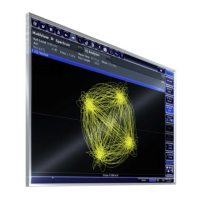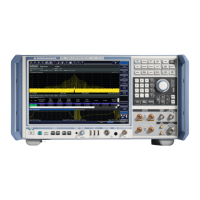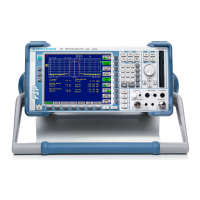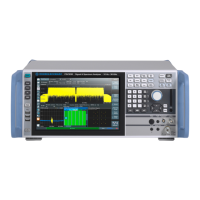Basics on I/Q Data Acquisition and Processing
R&S
®
FSWP
27User Manual 1177.5856.02 ─ 07
4.4 I/Q Data Import and Export
Baseband signals mostly occur as so-called complex baseband signals, i.e. a signal
representation that consists of two channels; the in phase (I) and the quadrature (Q)
channel. Such signals are referred to as I/Q signals. The complete modulation informa-
tion and even distortion that originates from the RF, IF or baseband domains can be
analyzed in the I/Q baseband.
Importing and exporting I/Q signals is useful for various applications:
●
Generating and saving I/Q signals in an RF or baseband signal generator or in
external software tools to analyze them with the R&S FSWP later
●
Capturing and saving I/Q signals with an RF or baseband signal analyzer to ana-
lyze them with the R&S FSWP or an external software tool later
For example, you can capture I/Q data using the I/Q Analyzer application and then per-
form analog demodulation on that data using the R&S FSWP AnalogDemodulation
application, if available.
As opposed to storing trace data, which may be averaged or restricted to peak values,
I/Q data is stored as it was captured, without further processing. The data is stored as
complex values in 32-bit floating-point format. Multi-channel data is not supported. The
I/Q data is stored in a format with the file extension .iq.tar.
An application note on converting Rohde & Schwarz I/Q data files is available from the
Rohde & Schwarz website:
1EF85: Converting R&S I/Q data files
The import and export functions are available in the "Save/Recall" menu which is dis-
played when you select the "Save" or "Open" icon in the toolbar (see Chapter 5.2,
"Import/Export Functions", on page 38).
Export only in MSRA mode
In MSRA mode, I/Q data can only be exported to other applications; I/Q data cannot be
imported to the MSRA Master or any MSRA applications.
I/Q Data Import and Export
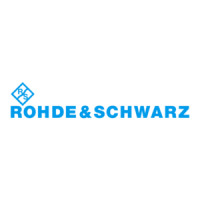
